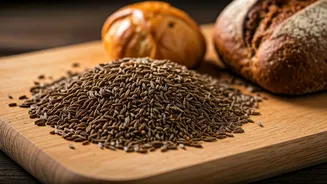Vet Visits: Key Concern
Regular vet check-ups are fundamental to your Labrador puppy's well-being. These visits aren't just about vaccinations; they're a chance to monitor overall
health and catch potential issues early. The vet will assess your puppy's growth, listen to their heart and lungs, and check for any signs of illness or injury. Early detection is critical, making these visits a cornerstone of responsible pet ownership. Your vet can provide valuable advice on nutrition, exercise, and parasite prevention, tailoring recommendations to your puppy's specific needs. Following the vet's guidelines ensures your Labrador puppy gets the best start in life. These visits also allow you to ask questions, address concerns, and build a trusting relationship with your vet, strengthening the bond between you, your pup, and the veterinarian.
Energetic Puppy Playtime
Labrador puppies are bundles of energy, needing regular physical activity to thrive. This energy isn't just about running and playing; it’s about mental stimulation too. Daily exercise helps them burn off excess energy, preventing destructive behaviors that may arise from boredom or frustration. Engaging in activities like fetch, walks, or even simple games in the backyard will not only keep your puppy physically fit but also strengthen the bond between you. It's important to match the exercise intensity to your puppy's age and development, allowing for rest and avoiding overexertion. Proper exercise is crucial for your Labrador’s health and happiness, preventing behavioral problems and encouraging positive habits.
Grooming Is Essential
Grooming is a crucial aspect of Labrador Retriever care, extending beyond mere aesthetics to include health and hygiene. Regular brushing is essential for removing loose fur and preventing mats, particularly given their tendency to shed. This also helps to distribute natural oils, keeping their coat healthy and shiny. Bathing should be done as needed, not too frequently, to avoid drying out their skin. Routine ear cleaning, nail trimming, and teeth brushing are also vital components of a comprehensive grooming routine. Establishing a grooming schedule early helps your puppy become accustomed to these procedures, making them less stressful for both of you. Regular grooming ensures your Labrador remains comfortable, healthy, and well-presented.
Embrace Their Love to Chew
Labrador puppies, like all puppies, love to chew. It's a natural behavior, helping them explore their environment, relieve teething pain, and simply pass the time. Providing appropriate chew toys is essential to redirect this behavior away from your furniture and belongings. Choose durable, puppy-safe toys made from non-toxic materials. Rotate the toys to keep things interesting and prevent boredom. Supervise your puppy, especially during initial chewing sessions, to ensure they are playing safely. Redirect them with a chew toy if they start chewing on something they shouldn't. Managing their chewing habits effectively is crucial for a harmonious household and prevents unwanted damage.
Early Training Is Key
Early training is crucial for shaping your Labrador puppy into a well-behaved companion. Start with basic obedience commands like sit, stay, come, and down. Positive reinforcement, such as treats and praise, is the most effective method. Consistency is key; practice these commands regularly in short, fun sessions. Socialisation is an essential part of training, exposing your puppy to different people, places, and sounds. This helps them become confident and well-adjusted. Consider enrolling your puppy in a puppy class to learn basic skills and socialize with other dogs. Early training not only teaches obedience but also strengthens the bond between you and your puppy, fostering a lifetime of companionship.
Socialisation Builds Confidence
Socialisation is a vital part of your Labrador puppy's development, shaping them into well-adjusted adults. This involves exposing your puppy to a variety of experiences, including different people, dogs, environments, and sounds. Positive interactions during this critical period help them learn to cope with new situations without fear or anxiety. Start socialising your puppy as early as possible, within the guidelines of your vet's advice for vaccination protection. Supervised playdates with friendly, vaccinated dogs are a great way to build their confidence. Take them on walks in different places and expose them to everyday sounds like traffic and household appliances. A well-socialised Labrador will be a confident, happy, and adaptable companion.
Expect Some Shedding
Be prepared for shedding, as Labrador Retrievers are known for it. They have a double coat that sheds seasonally, particularly during spring and fall. Regular brushing helps to minimise the amount of loose hair around your home. Investing in a good quality brush, such as a slicker brush or a deshedding tool, can make a significant difference. While shedding is normal, excessive shedding could indicate a health issue, such as allergies or a nutritional deficiency. If you notice excessive shedding, consult with your vet to rule out any underlying problems. Understanding their shedding patterns will help you manage your expectations and keep your home relatively fur-free.
Lifespan and Health
Labrador Retrievers typically have a lifespan of 10 to 12 years, but this can vary depending on several factors, including genetics, diet, and overall care. Responsible breeders prioritise health testing to minimise the risk of genetic diseases like hip dysplasia and progressive retinal atrophy. A balanced diet and regular exercise are crucial for maintaining a healthy weight and preventing obesity, which can shorten their lifespan. Regular vet check-ups are essential for monitoring your Labrador's health and detecting any potential issues early. By providing a healthy lifestyle and preventative care, you can help ensure your Labrador enjoys a long and happy life.
Mental Simulation Matters
Labradors are intelligent dogs that require mental stimulation to stay happy and content. Boredom can lead to destructive behaviors, so it's important to provide opportunities for them to use their minds. Puzzle toys, training sessions, and interactive games are great ways to keep them mentally engaged. Hide treats around the house or yard and let your Labrador find them. Teach them new tricks regularly, keeping them challenged and engaged. Mental stimulation is as important as physical exercise for a healthy, well-behaved Labrador, preventing boredom and encouraging positive behaviours. Labs love to think and learn.
Build Strong Bonds
Building a strong bond with your Labrador puppy is vital for a fulfilling relationship. Spend quality time together, playing, training, and simply relaxing. Positive interactions, like petting, cuddling, and talking to your puppy, help to create a sense of trust and love. Consistency in your interactions helps your puppy understand what is expected of them. Establish routines and rituals to build a secure environment. Remember that patience, understanding, and love are the foundations of a lasting and happy relationship with your Labrador Retriever. Nurture the special connection you have and enjoy the joy of companionship.












